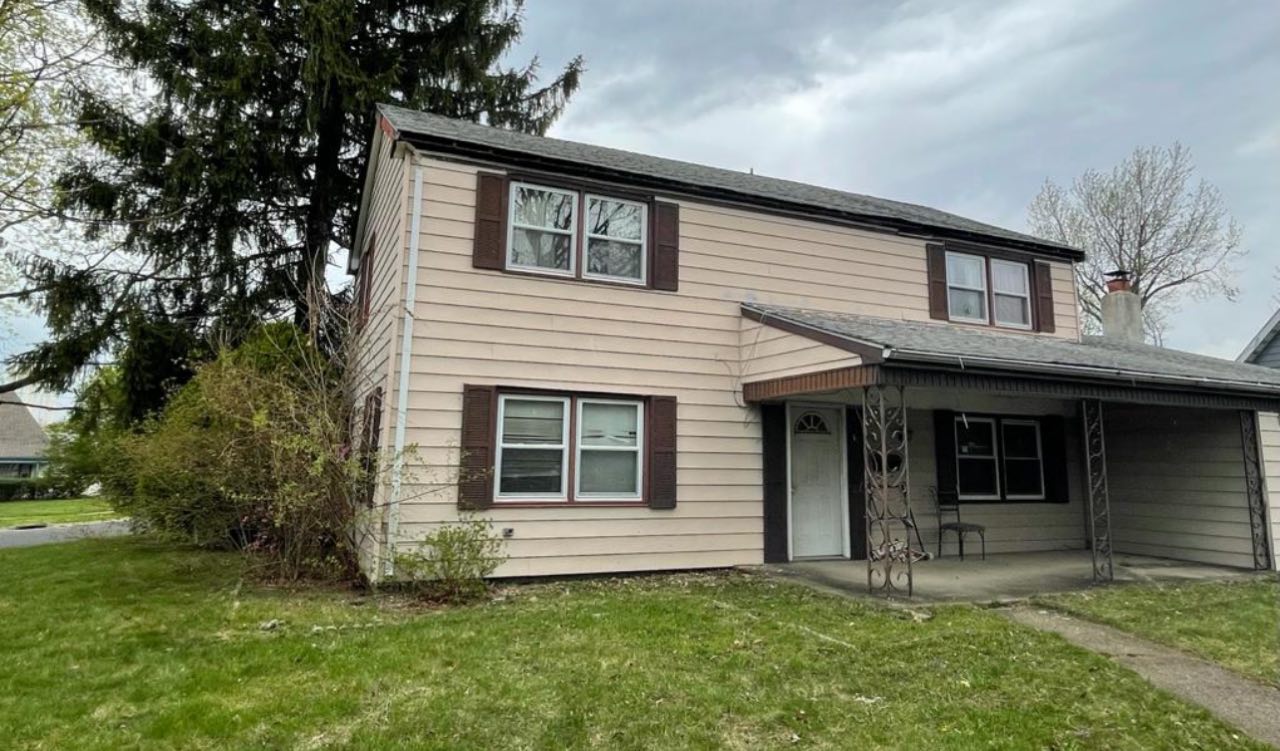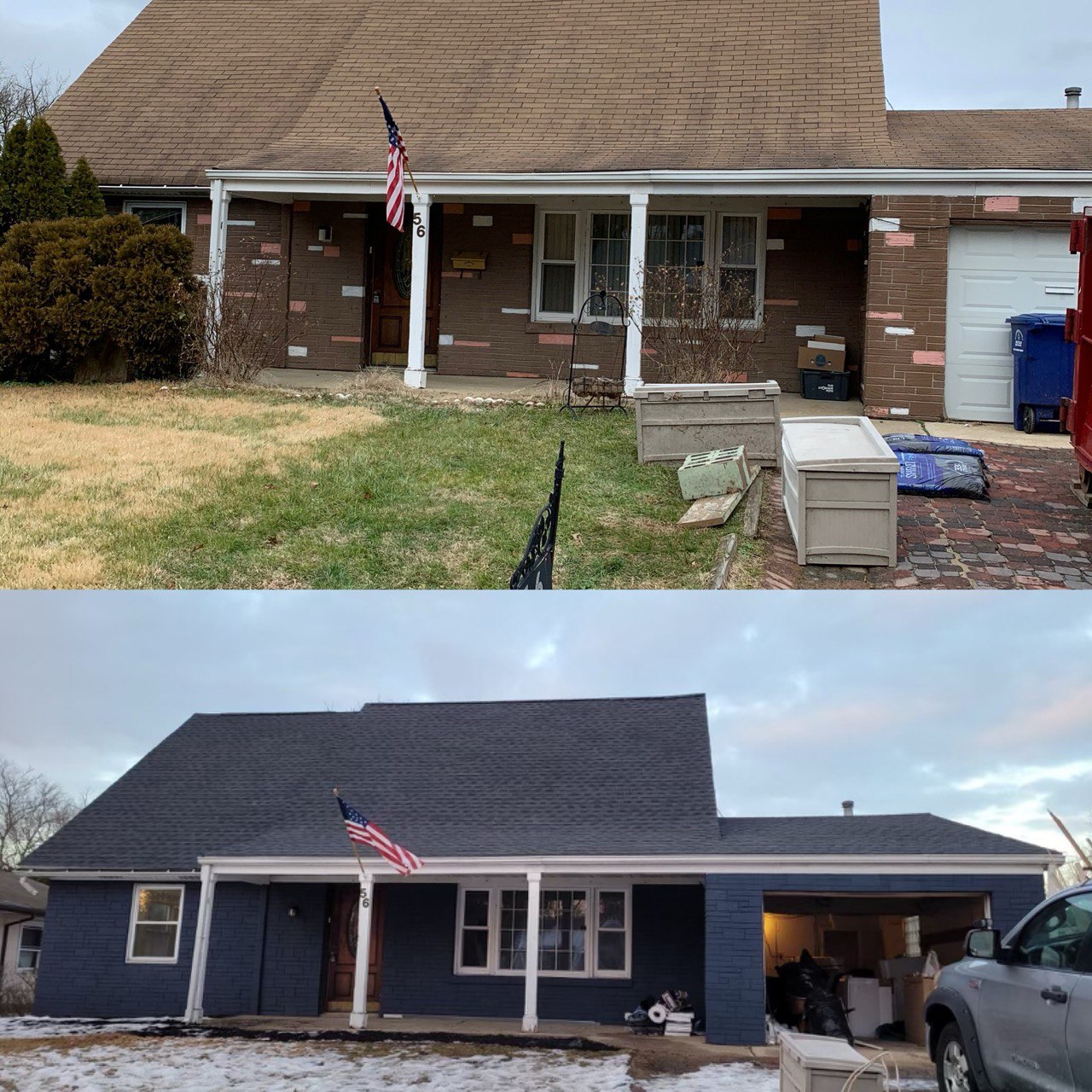Introduction

Inheriting a house can be both an emotional and financial challenge for homeowners. From navigating the complexities of the probate process to dealing with the practicalities of selling a property, it is crucial to identify the best way to sell an inherited house in New Jersey. Savannah Properties NJ, a professional and customer-focused home buying company, offers a range of services designed to help homeowners sell their inherited houses quickly and for a fair price.
Understanding Probate Process and Inheritance Laws in New Jersey
In order to sell an inherited house in New Jersey, it is essential to understand the probate process and inheritance laws in the state. Probate is a legal procedure that involves the administration and distribution of a deceased person’s estate. The process typically starts with the appointment of an executor, who is responsible for settling the estate’s debts, paying taxes, and distributing assets to the rightful beneficiaries.
The role of the probate court in selling an inherited property is to ensure that the executor is fulfilling their duties and that the distribution of assets is carried out in accordance with the deceased person’s will or state law. If the inherited property needs to be sold as part of the probate process, the court may require the executor to obtain approval before proceeding with the sale.
When it comes to inheritance laws in New Jersey, the state follows the Uniform Probate Code, which sets out the guidelines for estate administration and the distribution of assets. In the absence of a valid will, assets are distributed according to the state’s intestate succession laws. These laws dictate the order in which relatives are entitled to inherit from the deceased person’s estate, with the surviving spouse and children generally being the first in line to receive assets.
The timeframe for selling an inherited house in New Jersey can vary, depending on factors such as the complexity of the estate and the need for court approval. On average, the probate process in New Jersey takes between six and twelve months to complete, but it can take longer in more complicated cases. It is important for those selling an inherited house to be aware of this timeframe and plan accordingly to avoid any potential delays or complications.
Preparing Inherited House for Sale
When it comes to selling an inherited house in New Jersey, proper preparation is crucial to ensure a smooth transaction. Before putting the property on the market, there are several steps homeowners must take:
Cleaning and Sorting Personal Belongings
First, it’s essential to clean the property thoroughly and sort through any personal belongings left by the deceased. This process can be emotionally challenging, but it helps create a clean slate for potential buyers. Organize items into categories, such as those to keep, donate, or discard. This process will make the house more appealing and help the new owners start on a fresh note.
Conducting Property Inspections and Necessary Repairs
Next, homeowners should conduct a comprehensive property inspection to identify any underlying issues that may need addressing before the sale. This step ensures that the property is in good condition and can help prevent any surprises during the buyer’s inspection. Depending on the findings, necessary repairs should be made to improve the property’s value and attractiveness to potential buyers.
Dealing with Outstanding Mortgages and Debts
Before selling an inherited house, it’s crucial to address any outstanding mortgages or debts associated with the property. This step may involve working with a financial advisor or attorney to determine the best course of action. Clearing outstanding debts can make the selling process smoother and protect the inheritors from potential legal issues.
Assessing the Value of the Property
Finally, it’s essential to accurately assess the value of the property to determine a fair listing price. Homeowners should research comparable properties in the area and consult with real estate professionals for guidance. Setting the right price is crucial for attracting potential buyers and ensuring a successful sale.
In conclusion, preparing an inherited house for sale involves several important steps, including cleaning, conducting inspections, addressing outstanding debts, and assessing the property’s value. By taking the time to properly prepare, homeowners can increase the chances of a successful and profitable sale.
Best Ways to Sell Inherited House NJ
Finding the best method to sell your inherited house in New Jersey can make a significant difference in the overall process. In this section, we will explore four popular ways to sell an inherited house, discussing their pros and cons, and offering tips for success in each method.
Traditional Real Estate Agent
Working with a traditional real estate agent is a common choice for many homeowners. A real estate agent can provide valuable expertise and assistance in pricing, marketing, and negotiating the sale of your property. However, this option often comes with some drawbacks, such as paying a commission fee and dealing with a potentially lengthy selling process. To choose the right agent, research their experience and track record in selling inherited properties, and seek recommendations from friends or family members who have successfully sold inherited houses in the past.
Selling to a Real Estate Investor
Selling your inherited house to a real estate investor can provide several advantages, such as a fast closing process, flexible terms, and the option to sell the property “as-is” without the need for costly repairs. On the other hand, you might receive a lower offer compared to selling through an agent. Savannah Properties NJ is an ideal solution for homeowners looking to sell their inherited house quickly and for cash. They provide a fair cash price, quick closing process, and flexible closing dates to accommodate your needs.
For Sale by Owner (FSBO)
Choosing to sell your inherited house through the For Sale by Owner (FSBO) method can save you money on agent commissions and give you more control over the sale process. However, successfully selling an inherited property FSBO can be challenging due to the responsibility of handling all aspects of the sale, including marketing, pricing, and negotiations. To successfully sell your inherited house FSBO, be prepared to invest time and effort into the process, from researching local market trends to effectively advertising your property.
iBuyer Services
iBuyer services offer an alternative way to sell your inherited house using an online platform. This option can provide a fast and convenient selling process, with the potential for a quick closing timeline. However, iBuyer services may not always provide the best price for your property, and their fees can be higher compared to other methods. When considering iBuyer services, it’s essential to compare their offers and fees with other selling options to determine if this method is the best fit for your situation.
In conclusion, each method of selling an inherited house in New Jersey has its unique advantages and challenges. Carefully consider your needs, timeline, and financial goals when selecting the best way to sell your inherited house. And remember, Savannah Properties NJ is always available to provide professional guidance and assistance throughout the process.
Tax Implications of Selling Inherited House
When selling an inherited house in New Jersey, it is crucial to be aware of the tax implications that may arise. In this section, we will discuss capital gains taxes, New Jersey inheritance tax, and strategies for minimizing tax liabilities when selling an inherited property.
Capital Gains Taxes
Capital gains tax is levied on the profit made from selling an inherited house. The taxable gain is calculated by subtracting the property’s adjusted basis (typically the fair market value at the time of inheritance) from the selling price. Long-term capital gains tax rates depend on your income level and can range from 0% to 20%. It is essential to consult with a tax professional to understand the specific tax implications and reporting requirements.
New Jersey Inheritance Tax
In addition to capital gains taxes, New Jersey imposes an inheritance tax on certain transfers of property. The tax rate varies depending on the relationship between the deceased and the beneficiary. For example, spouses and direct descendants (children, grandchildren) are exempt from inheritance tax, while siblings and other relatives may be subject to rates ranging from 11% to 16%. It is crucial to determine whether the inherited property is subject to this tax and take it into account when planning the sale.
How to Minimize Tax Liabilities When Selling an Inherited Property
There are several strategies to consider when trying to minimize tax liabilities when selling an inherited house in New Jersey. Some of these strategies include:
- Consulting with a tax professional to understand the specific tax implications and reporting requirements for your situation.
- Timing the sale to minimize capital gains tax. If you expect your income to decrease in the near future, waiting to sell could result in a lower tax rate on the capital gains.
- Considering a 1031 exchange, which allows you to defer capital gains tax by reinvesting the proceeds from the sale into a like-kind property within a specific timeframe.
- Exploring tax deductions and credits, such as home improvement and energy efficiency tax credits, which could offset some of the tax liabilities.
By understanding the tax implications of selling an inherited house and employing strategies to minimize tax liabilities, you can maximize your return on the property sale. It is always advisable to consult with a tax professional to ensure you are fully informed about your specific situation.
Dealing with Multiple Inheritors and Disagreements
When selling an inherited property in New Jersey, it is not uncommon for multiple inheritors to be involved. This situation can sometimes lead to disputes and disagreements among the parties, which can potentially delay the sale process. In this section, we will discuss the importance of clear communication and compromise, strategies for dividing assets fairly, and the role of a mediator in resolving disputes.
The Importance of Clear Communication and Compromise
Effective communication is crucial in ensuring a smooth and amicable sale process when dealing with multiple inheritors. All parties must be willing to openly discuss their expectations, concerns, and any potential disagreements. By engaging in open and honest dialogue, inheritors can work together towards a common goal and minimize misunderstandings. It is essential for all parties to be willing to compromise and find a solution that satisfies everyone’s interests.
Strategies for Dividing Assets Fairly
Dividing the assets of an inherited property fairly among multiple inheritors can be challenging. However, it is essential to ensure that all parties feel that they are being treated equitably. Some strategies that can be employed to achieve a fair division of assets include:
- Obtaining a professional appraisal of the property to determine its accurate market value.
- Considering the individual financial needs and contributions of each inheritor.
- Discussing potential options for dividing the proceeds from the sale, such as splitting the profits equally or proportionally based on each inheritor’s investment or contributions to the property.
- Exploring alternative solutions, such as renting out the property and dividing the rental income among the inheritors.
By considering these strategies, inheritors can work together to develop a fair and mutually agreeable plan for dividing the assets of the inherited property.
The Role of a Mediator in Resolving Disputes
In cases where disputes among inheritors cannot be resolved through direct communication and negotiation, a mediator can be engaged to help facilitate a resolution. A mediator is an impartial third party who assists in the negotiation process by helping the parties identify their interests, explore potential solutions, and reach a mutually acceptable agreement. A mediator does not impose a decision on the parties but rather guides them towards finding a resolution that works for everyone involved.
Mediation can be an effective means of resolving disputes related to selling an inherited property in New Jersey, particularly when emotions and personal relationships are at stake. By engaging a mediator, inheritors can work towards a fair and amicable resolution that benefits all parties and enables the sale process to proceed smoothly.
Tips for Successfully Selling Inherited House Quickly
Selling an inherited house quickly can be a daunting task, but with the right approach, you can make the process smoother and more efficient. Here are some valuable tips to help you navigate the process successfully:
Pricing the Property Competitively
One of the most critical factors in selling an inherited house quickly is setting a competitive price. Conduct thorough research on comparable properties in the area and seek professional advice from a local real estate agent or appraiser. A well-priced property can attract more potential buyers and lead to a faster sale.
Preparing the House for Showings and Open Houses
First impressions matter when it comes to selling a property. To make your inherited house more appealing to potential buyers, ensure it is clean, decluttered, and well-maintained. If necessary, consider making minor repairs and updates that can boost the property’s value and appeal. A well-presented house can significantly improve the chances of a quick sale.
Negotiating with Potential Buyers
Effective negotiation skills can help you secure a favorable deal when selling an inherited house. Be prepared to compromise on certain aspects but also know your limits. Stay calm and professional during negotiations, and don’t be afraid to walk away from an offer if it doesn’t meet your expectations. Remember, patience and persistence can pay off in the long run.
Managing Financial Obligations During the Sale Process
While selling an inherited house, it’s essential to stay on top of any financial obligations related to the property. This may include settling outstanding debts, paying property taxes, and covering utility bills. By proactively managing these financial aspects, you can avoid potential setbacks and ensure a smoother sale process.
In conclusion, selling an inherited house quickly in New Jersey requires a strategic approach, attention to detail, and a willingness to adapt to the unique challenges that may arise. By following these tips and seeking professional assistance when needed, you can successfully navigate the process and secure a favorable outcome for all involved parties.
Benefits of Choosing Savannah Properties NJ for Selling Inherited House
When selling an inherited house in New Jersey, homeowners often face challenges such as finding the most suitable approach and navigating the complex legal processes. Choosing the right partner to help in this journey is essential. Savannah Properties NJ offers a range of benefits that make selling your inherited house a smooth and stress-free experience. In this section, we will highlight the advantages of partnering with Savannah Properties NJ.
Fast Offer Turnaround Time
One significant benefit of working with Savannah Properties NJ is the fast offer turnaround time. Within 24 hours, you can receive a fair cash offer for your inherited house, allowing you to make quick decisions and move forward with the sale process. This quick response time sets Savannah Properties NJ apart from other home buying companies and traditional real estate agents.
Option to Sell the House “As-Is”
Selling an inherited house often comes with the burden of costly repairs and extensive cleaning. However, with Savannah Properties NJ, you have the option to sell your house “as-is,” eliminating the need for time-consuming and expensive home improvements. This benefit not only simplifies the sale process but also helps you maximize your financial returns from the sale.
Flexible Closing Date
Savannah Properties NJ understands that circumstances can vary for each homeowner, which is why they offer a flexible closing date. You can choose the closing date according to your preference and convenience, making the selling process more manageable and less stressful. This flexibility is particularly beneficial when dealing with the legal complexities of selling an inherited property.
Fair Cash Price and Quick Closing Process
Last but not least, Savannah Properties NJ assures homeowners of a fair cash price for their inherited house. By offering a competitive price, the company ensures that you receive the best possible value for your property. Additionally, Savannah Properties NJ is known for its quick closing process, enabling you to complete the sale and move on to the next phase of your life without unnecessary delays.
In conclusion, partnering with Savannah Properties NJ for selling your inherited house in New Jersey can significantly simplify the process and provide you with the best possible outcome. With their fast offer turnaround time, option to sell “as-is”, flexible closing date, and fair cash price, Savannah Properties NJ is the ideal choice for homeowners looking to sell their inherited property efficiently and effectively.
Ready for a Smooth Sale?
In this guide, we explored the best ways to sell an inherited house in NJ, including traditional real estate agents, real estate investors, For Sale by Owner (FSBO), and iBuyers. Making an informed decision ensures a smoother selling process and helps you avoid common pitfalls. Savannah Properties NJ specializes in buying inherited houses quickly for cash, with a 24-hour offer turnaround time, the option to sell “as-is,” and a flexible closing date. For a stress-free selling experience, reach out to Savannah Properties NJ for expert assistance in selling your inherited property.







